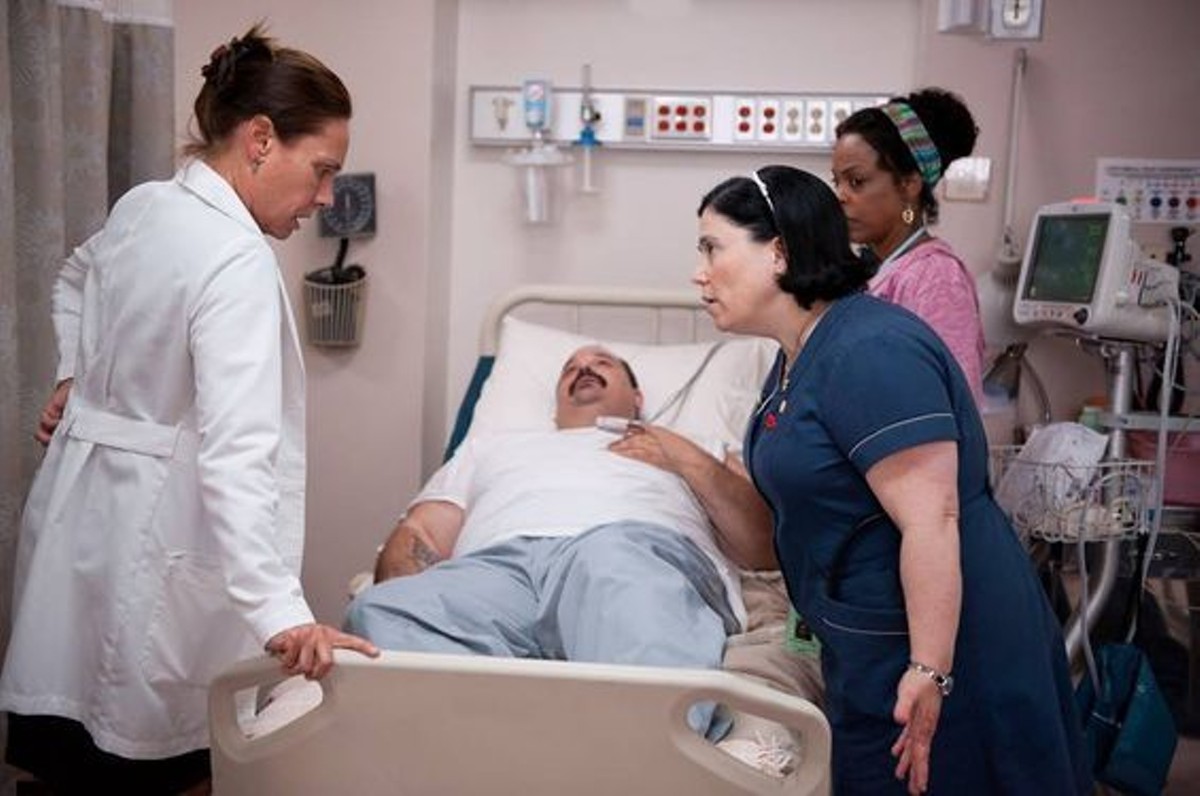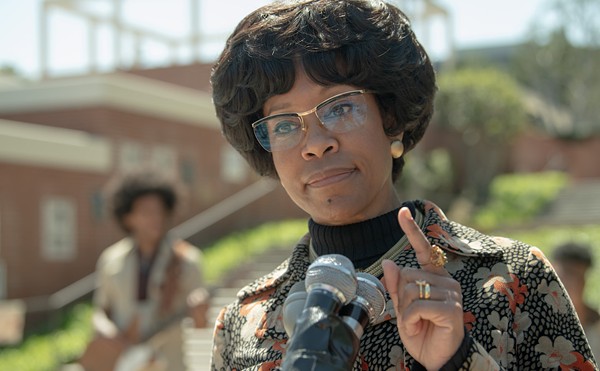Hospitals are depressing. Until recently, medical shows glossed over this basic fact of life by focusing on the most glamorous clique within them: doctors. For the past two decades, the upwardly mobile audience identification integral to most TV shows taught us to look away from the bedpans and sheaves of insurance paperwork and focus instead on the halos (ER), the lip gloss (Grey's Anatomy), the chicken soup for the soul (Scrubs), or the preening intellect (House) of every hospital's upper crust.
Grey's Anatomy is still going strong in its 11th season, but since House's departure from the airwaves in 2012, we've been living in the twilight of the docs. Last year, Shonda Rhimes's cornerstone series was the only medical show to crack the top half of the broadcast ratings. This week brought news that Fox has canceled its pediatric-ward-set Red Band Society. Already a kind of backlash to its treacly cousins, House ushered in a wavelet of even more self-aware or cynical medical shows like Showtime's Nurse Jackie, Cartoon Network's Children's Hospital, and HBO's Getting On that channel viewer disinterest in the goodliness of doctors and, arguably, the nation's growing suspicion of medical professionals.
Of those three programs, Getting On is the least known but the most daring, insightful, and poignant. Now in its six-episode second season (after its November 9 premiere), the superb workplace comedy continues to explore themes of power, gender, class, corporatization, mortality, and the mysteries of the stuff that comes out of our butts. (Believe me, you don't know as much as you think you know.) For the show's impressive sophomore year, showrunners Mark V. Olsen and Will Scheffer have embraced greater serialization to make one of pop culture's most incisive commentaries on the failures of the American healthcare system.
In other words, Getting On leans into the bleakness of hospital life, embracing the realities of the 9 to 5 in a geriatric ward, but with enough honesty, humor, and satirical purpose to highlight the nurses' and one doctor's efforts to cling to their humanity in a careless and infinitely corruptible machine.
Manning the Billy Barnes Extended Care Unit are three middle-aged women: nurses Dawn Forchette (Alex Borstein) and Didi Ortley (Niecy Nash) and physician Jenna James (Laurie Metcalf). Accompanying the constant hum of medical equipment are Dawn and Jenna's craving for authority and recognition. Duty-bound to care for others, Dawn is starved for affection herself and chafes at what she (correctly) perceives to be her primary job responsibility: following the orders of Dr. James precisely, even if they don't make sense or, in some cases, mean extra work for no pay. Her desperation to feel appreciated by her fellow nurse and on-again, off-again boyfriend Patsy de la Serda (Mel Rodriguez) steers her, by season's end, into a romantic calamity that's pitch-perfect for the character in its self-destructive recklessness.
Just as lonely, Dr. James is the rage-filled cyclone around which the ward cowers. But it's more than obvious that, despite her casual bullying, she, too, is a wounded creature. When funding for her research on vaginal atrophy or shrinking perinea or old-age sharts (it's honestly impossible to keep up with her various projects) gets cut off, she looks as injured as if she just had a limb -- and not just her ambition -- amputated. Despite her lofty status as the head of the geriatric department, Dr. James is rarely found with her dignity intact, thanks to the whirr of small-scale chaos in the ward. After locking horns with metrics-obsessed nurse-administrator Patsy last season, she finds herself inadvertently undermined by him once again when his energy-saving motion sensors in the bathroom leave her scratching wildly at the air for several moments for the luxury of peeing with the lights on.
Having mastered the art of melodramatic exasperation (and hilarious obliviousness), Metcalf gets several tender scenes or choleric standoffs this year with wonderful veterans like Jean Smart, Carrie Preston, Mary Kay Place, and a surprisingly tough Jayma Mays as a corporate hospice-care rep. The show is also always good for a game of "Wait, I Know Him/Her," with appearances by character actresses Lynn Cohen, Betty Buckley, and June Squibb as three very different types of difficult patient. (There's no such thing as an angelic patient in real life or on this show.)
Getting On occasionally indulges in the "old lady says bad words" shtick (e.g., "you smell especially rancid tonight"), which might yield a laugh but also seems beneath the series. Squibb's return to the show next Sunday, for example, leads to a stunt that would make the elderly actress's graveyard-flashing character in Nebraska blush. But the patients supply moments of joy and quiet rebellion, too -- literally, in the case of Birdy Lamb (Ann Guilbert), who shuts her eyes and nods off into a coma that's faker than John Travolta's hair whenever she's asked by a nurse to take an unwanted walk.
In contrast to Dawn and Dr. James, new nurse Didi isn't too bothered by the panic-attack-inducing power struggles going on around her. She's more miffed that Dr. James and even Dawn are so unmindful of the economic differences between them, as when the physician boasts about a two-hour massage she treats herself to on her day off. With six children to take care of (two of them hers, four of them her troubled sister's), Didi is focused on increasing her meager hourly rate of $12.55 by 28 cents. It's sad that her aspirations are so paltry, sadder still that the hospital will fight her tooth and nail to deny her that raise.
But that's how your healthcare sausage is made. (Spoilers ahead for the December 14 season finale) The highlight of this season is an unflinching exploration -- through an invisible buildup to a head-spinning finale -- of how self-absorbed doctors can jeopardize patients' health and burden the system when their professional ethics are compromised by corporate greed. With an acerbically funny and ultimately humanistic eye, Getting On reveals how imperfect individuals make do in a forbidding institution that holds all our lives in its rarely gentle hands.






